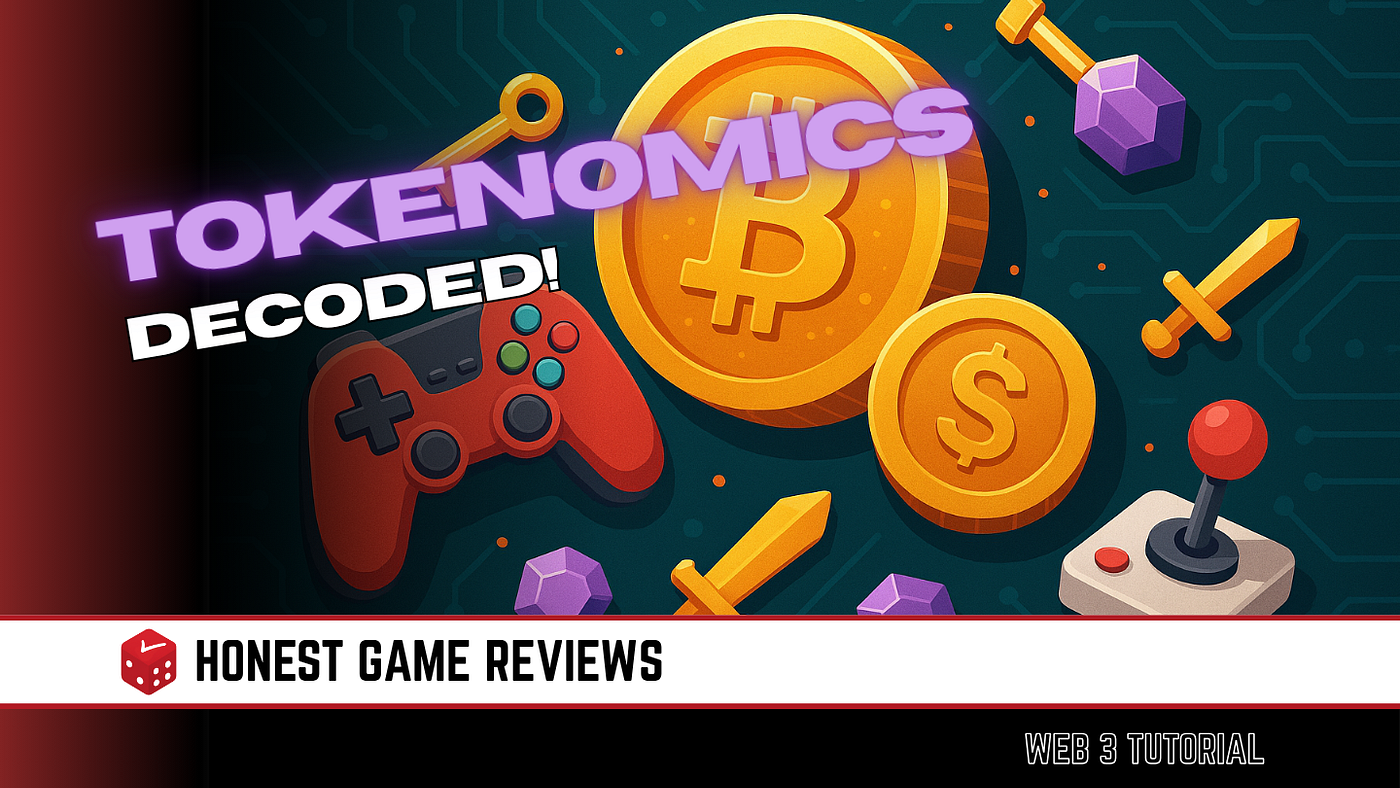Bach Hoa Hang Nga: Your Trusted Source for Quality Products
Explore a wide range of quality products and insightful articles.
Tokenomics Unplugged: How Gaming is Leveling Up Its Financial Game
Discover how gaming is reshaping finance! Explore the world of tokenomics and unlock secrets to gaming's financial revolution.
Understanding Tokenomics: The Financial Backbone of Modern Gaming
Tokenomics refers to the study and design of the economic systems that revolve around cryptocurrencies and tokens within various ecosystems. In the realm of modern gaming, understanding tokenomics is crucial, as it forms the financial backbone that supports virtual currencies and in-game assets. Game developers leverage tokenomics to create engaging experiences for players while also generating revenue through multiple streams, such as in-game purchases, trading, and rewards systems. By effectively implementing tokenomics, developers can incentivize player behavior and enhance player retention, benefiting both the individual and the gaming community as a whole.
At its core, tokenomics focuses on how tokens are distributed, utilized, and their overall impact on the game's economy. Factors such as supply and demand, inflation rates, and market liquidity play critical roles in shaping the player's experience. As gamers increasingly look for ways to monetize their time spent playing, elements like non-fungible tokens (NFTs) and decentralized finance (DeFi) mechanisms are becoming prevalent. Understanding these elements not only empowers players to make informed decisions but also leads to a more vibrant and sustainable gaming ecosystem.

Counter-Strike is a popular multiplayer first-person shooter that has captivated gamers around the world. With its team-based gameplay and variety of game modes, players engage in tactical battles to complete objectives. If you're looking to enhance your gaming experience, be sure to check out the bc.game promo code for some exciting benefits!
How Play-to-Earn Models are Reshaping Game Economies
The rise of Play-to-Earn models is transforming traditional game economies by enabling players to not only enjoy gameplay but also earn tangible rewards. In these models, players can accumulate cryptocurrency, in-game assets, or tokens that possess real-world value, creating a unique economic ecosystem within the gaming world. This shift is attracting both gamers and investors alike, as the financial incentives encourage deeper engagement and longer playtimes. Moreover, the integration of blockchain technology ensures transparency in transactions, ultimately fostering trust among players.
As Play-to-Earn continues to gain momentum, game developers are rethinking their monetization strategies, focusing on sustainable growth without alienating their user base. The community-driven nature of these economies often leads to innovative gameplay mechanics, as developers experiment with reward systems that cater to both casual and hardcore gamers. Ultimately, the incorporation of Play-to-Earn models is not just reshaping game economies but also redefining the relationship between players and developers, setting a new precedent for the future of interactive entertainment.
The Future of In-Game Economies: Balancing Fun and Financial Incentives
The future of in-game economies is set to become increasingly complex as developers strive to balance fun and financial incentives. With the rise of play-to-earn models and blockchain technology, gamers now have the opportunity to earn real-world value from their in-game activities. This shift has prompted a reevaluation of how virtual goods and currencies are designed, making it essential for game developers to create environments where players can thrive while ensuring that the core gameplay remains engaging. As players become more savvy about the economic aspects of their gaming experiences, developers must integrate rewards systems that not only enhance player enjoyment but also promote a sustainable economic model.
To achieve this delicate balance, developers can employ various strategies, such as:
- Diverse monetization options that cater to different player preferences, from cosmetic purchases to gameplay-affecting items.
- Transparency in how financial systems operate, fostering trust among players regarding the value of in-game currencies.
- Regular updates and community engagement to ensure that the economy feels dynamic and responsive.
By keeping players invested both emotionally and financially, the future of in-game economies can evolve into a robust ecosystem that enhances the overall gaming experience without overshadowing the primary goal of fun.